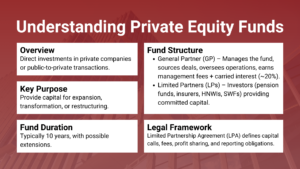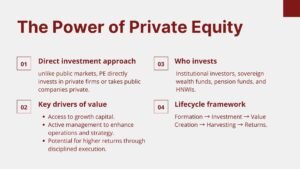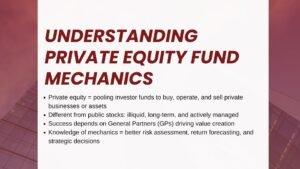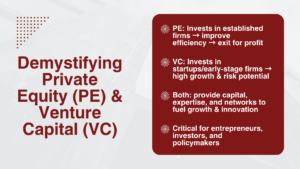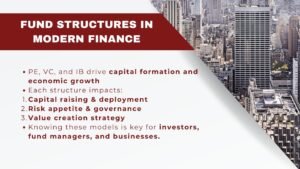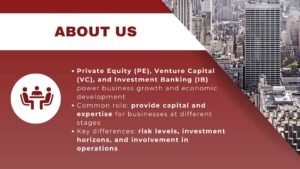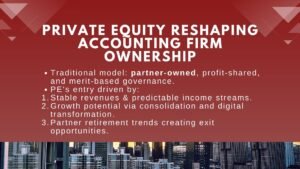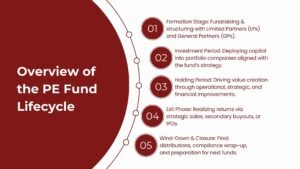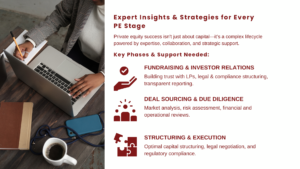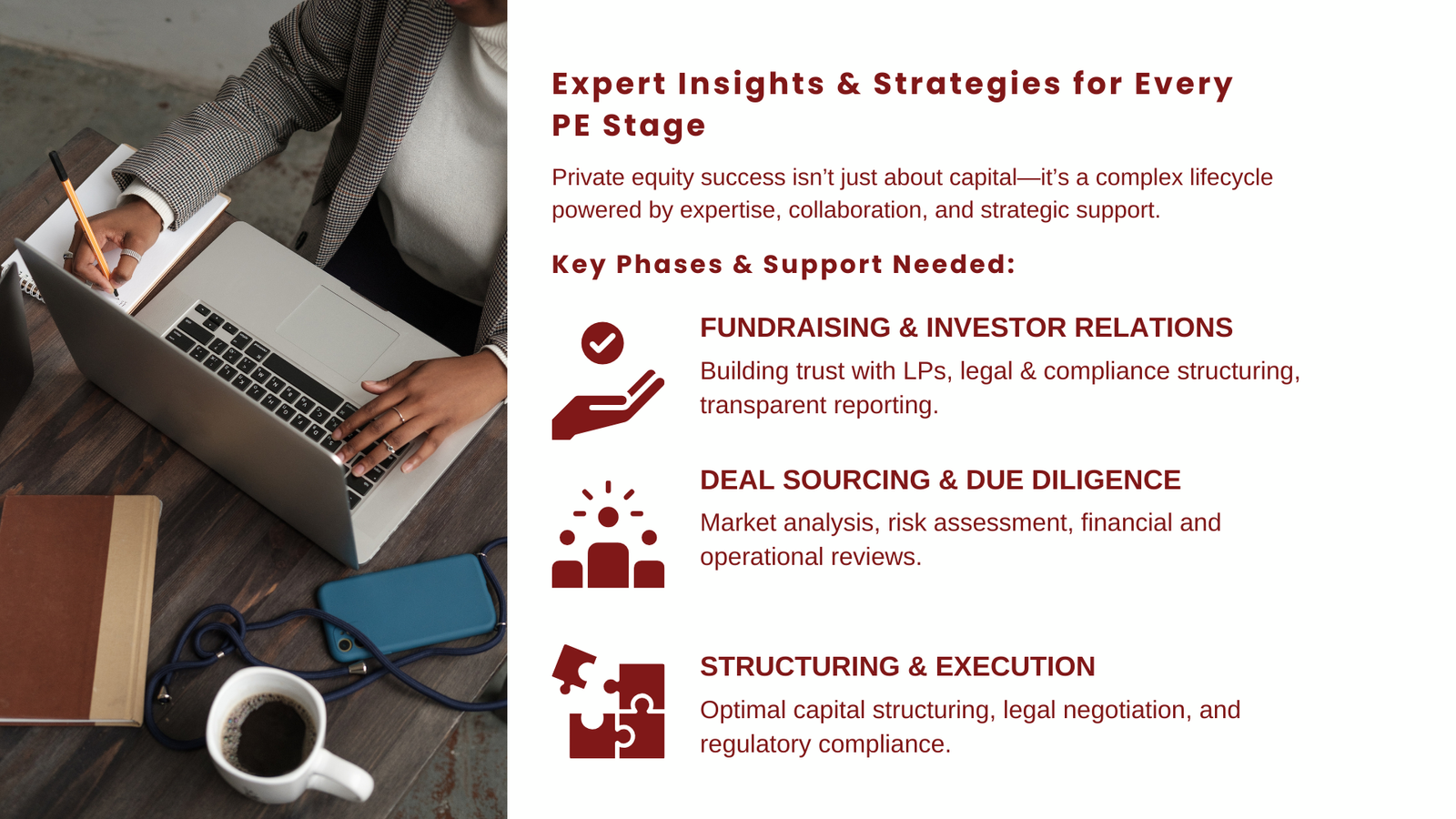
Supporting Every Stage of Private Equity with Expert Insights and Strategies
Supporting Every Stage of Private Equity with Expert Insights and Strategies
Private equity is an active growth dimension of the financial industry whose survival depends on its capacity to generate value, turn businesses around, and to make significant returns. The process of investing in a private equity is not limited to investing the capital; rather it is a complex lifecycle and every step is subject to developing support, expertise, and strategic implementation.
In raising funds and sourcing deals, in managing portfolios and an exit, the activities of a private equity firm are dependent on a wide circle of professionals, advisors and stakeholders to make investments successful and sustainable. Knowledge of the way support operates at each level of operation gives the idea of how the industry is complicated and how it affects businesses and economies, a topic often explored in an Advanced Private Equity Training Program Designed for Industry Professionals.
Fundraising and Investor Relations
Fundraising is the core of any fundraising activity pertaining to the field of private equity. The securing of commitments by the private equity firms requires institutional institutions, rich individuals, pension funds, and others as capital sources. At this stage we are not only concerned with raising funds but creating trust and credibility. Prospective investors must be persuaded of the company strategy, the past performance, the risk capabilities and the possibility of future earnings.
Investor relations officials are important at this point. They relay a firm value, set expectations and in reporting, they remain transparent. Fundraising processes are also assisted by the legal counsel, compliance officers and placement agents who assist in understanding the laws, but also in structuring their funds and in reaching out to the prospective limited partners (LPs). The assistance at this stage preconditions the effective implementation of capital in further stages.
Deal Sourcing and Due Diligence
When money is raised the effort changes to finding where to invest. The process of deal sourcing is competitive and it demands that the private equity firms use industry networks as well as investment banks, corporate advisors and proprietary research. At this step, the support is offered by financial analysts, market researchers, consultants giving views about possible targets, market trends, and competitive placement.
Due diligence is an important part of the process. It does more than the financial review; it encompasses operations, legal, tax, commercial and even cultural review. legal teams, Industry expertise, consultants, and accountants work jointly to ascertain risks and ensure investment thesis soundness. Their assistance means that the private equity firms need not fall into traps and maximize the potential of their investments. Such a challenging procedure ends up safeguarding investor capital and drives up the likelihood of post-acquisition value creation, as often highlighted in a Hands-On Due Diligence Course with Flexible Learning Options.
Structuring and Executing Investments
Through due diligence, the investment has to be designed and implemented by the private equity groups. This step will demand substantial contribution of lawyers, taxation experts and financial engineers. All the aim is to structure the capital structure with a level of equity, debt, and mezzanine financing that yields optimal returns and grapples with the risks.
Support in this phase also includes negotiation with sellers, regulators and financing partners. Contracts are drafted and reviewed by lawyers, debt financing is put in place by the banks and deal terms are validated by valuation experts. Sector-experienced advisors provide input on operational integration and the possible synergies. This team work makes the acquisition not only a strategic one but also legal without breach of the law and viable in a financial aspect.
Portfolio Management and Value Creation
After completion of the investment, the private equity firms should actively manage portfolio companies so that they are improved in terms of value. This phase is usually viewed as the core of the private equity where alteration takes place. The support provided at this stage includes the engagement of management consultants or operational experts as well as industry veterans who work with the leadership team of the company to produce a more acceptable performance.
They are generally about increased revenues, cost reduction, efficiency and digitization of operational processes, as well as geographical expansion. HR counselors can assist in recruiting the best leadership team and the experts of technology will modernize business operations by means of implementing systems. ESG experts are also on the rise and make sure that corporations are aligned with the requirements of sustainable practices and regulations, a focus area often highlighted in a Comprehensive ESG Training Covering Metrics, Reporting & Strategy.
In the portfolio management support system consultants are not the only people. Incorporation of boards of directors, advisory committees and internal firm teams ensure process tracking, as well as, through performance reporting. All these efforts culminate into the making of the direction of the portfolio companies towards successful exits.
Exit Strategies and Realizing Returns
The last phase of the scheme of the private equity is the exit point where companies capitalize the outcomes of investment and give the money back to investors. Exits can be in the form of initial public offerings (IPOs), strategic sales, secondary buyouts or recapitalizations. The support mechanisms that are needed in each of the exit strategies are different.
Investment bankers are usually the leaders in IPOs or sales procedures where they introduce companies to prospective purchasers or the public markets. Attorneys deal with document filings required under state or federal regulations and transactional agreements, and accountants prepare financial statements that will pass listing or acquisition terms. The communications experts and the investor relations groups develop messages making portfolio firms to appear as an appealing proposition to investors.
They do it by means of exiting it properly after years of helping it in every part. It is also an imperative performance indicator of success to the individual ventures of a private equity firm, since it notifies the success or failure of the investment strategy and the guarantee of returns to investors, consequently enhancing the capability of the firm to raise capital in the future funds.
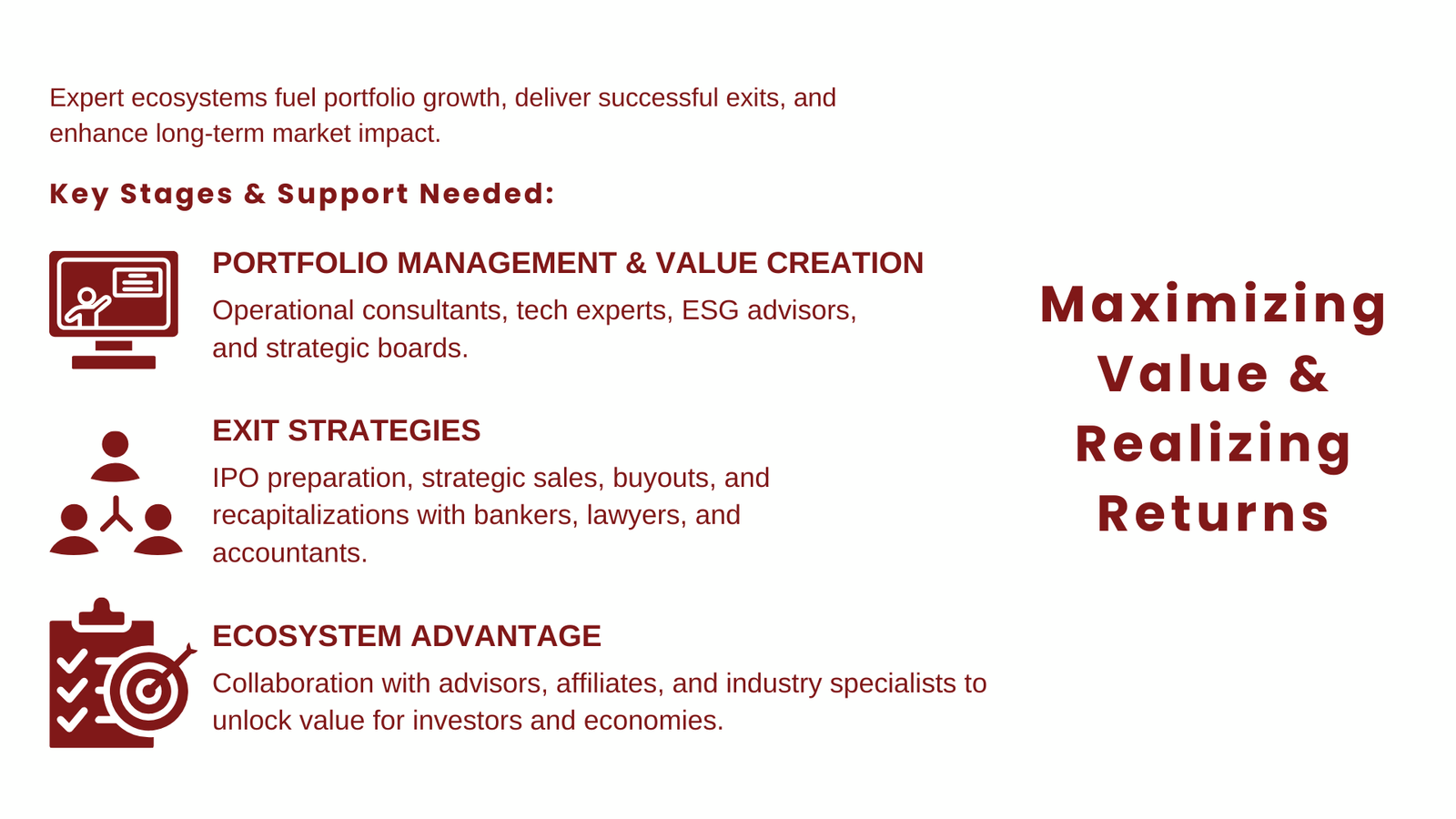
The Importance of Ecosystem Support in Private Equity
Acquiring, managing and supporting private equity through all levels is beyond a mere financial operation, but the need of a strong ecosystem of consultants, affiliates, and professionals. The roles of each of the stakeholders are different to make sure that there is the raising of funds, deployment of funds, and transformation of portfolio companies and the delivery of exits in the best possible ways.
This ecosystem is needed more than ever due to the growing complexity of global markets, regulatory environments and technological changes. Effective use of this support mechanism places a competitive advantage in the hands of private equity firms that are able to generate value not just to the investors that have entrusted capital resources, but also to the businesses and industries they innovate.
Conclusion
The use of private equity is a complex investment strategy that borrows sort of expertise at every lifecycle of its existence. Through the formative stages of raising funds and to driving exits in a considered way, the use of advisors, consultants, lawyers and accountants together with industry expertise will assure that firms can deal with risks and unlock value. The power of private equity is not just the amount of installed capital but the network of collaboration that allows fostering growth and change. Assisting in all phases of the privately backed equity is thus not about helping in making deals but in establishing viable companies that can deliver towards the long term economic development.



